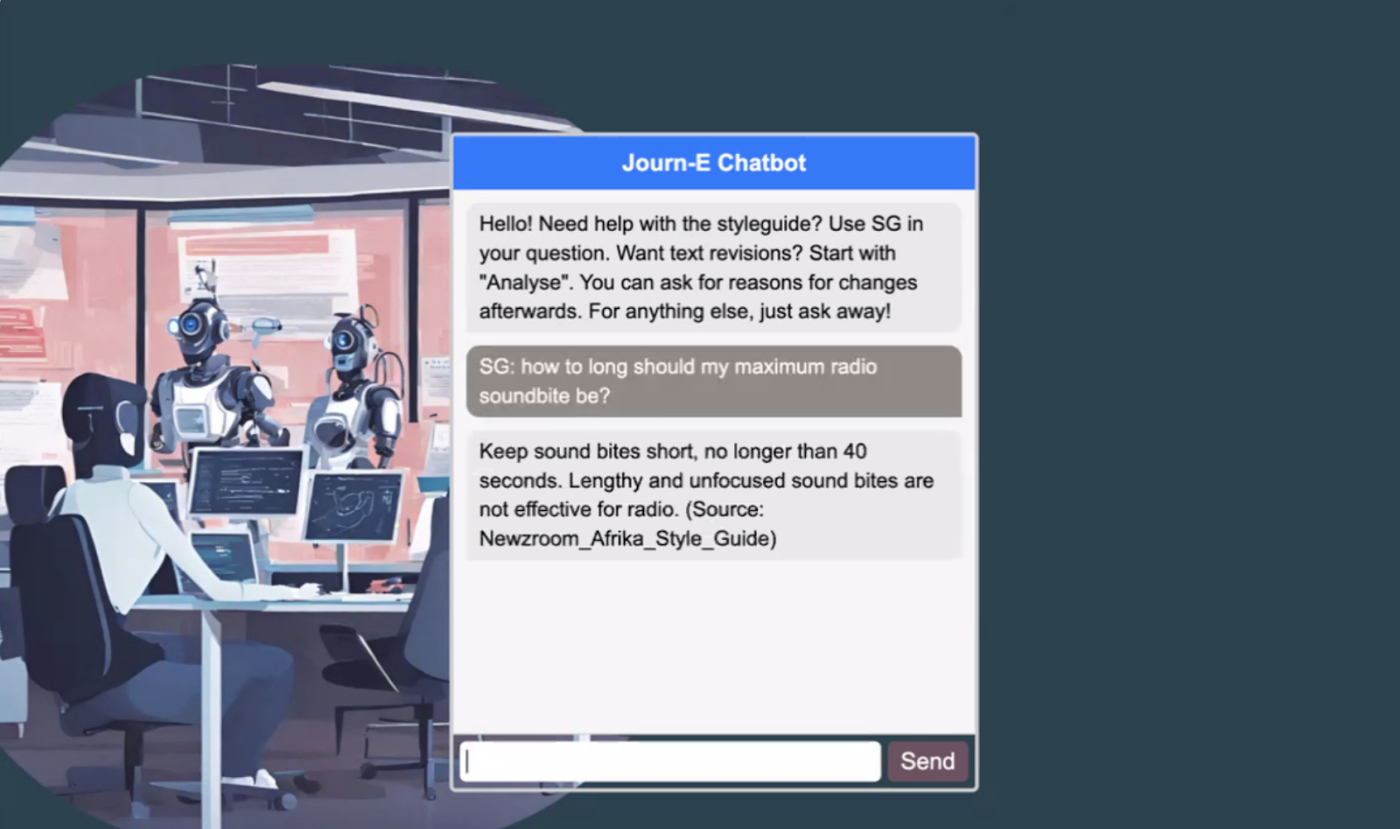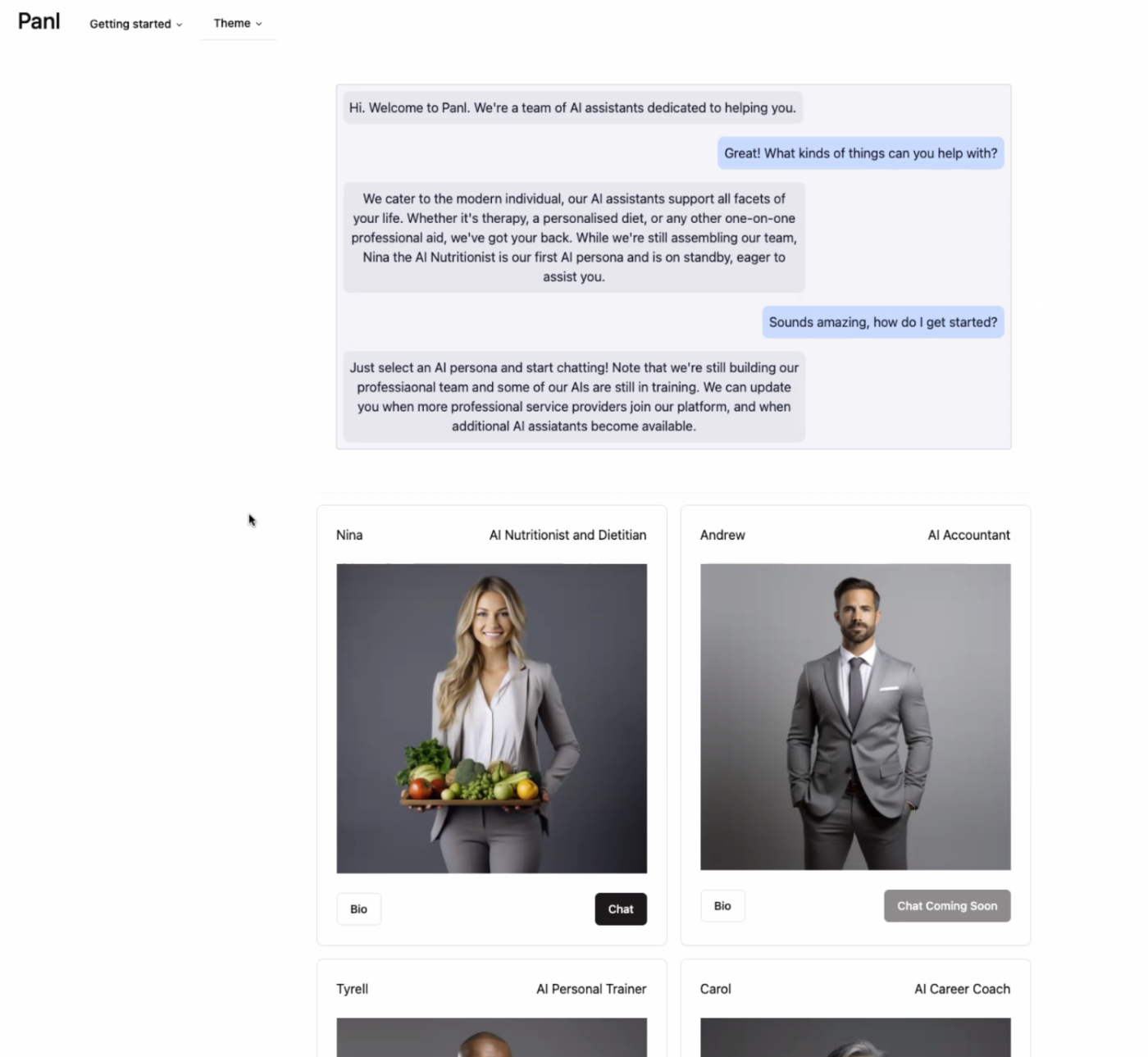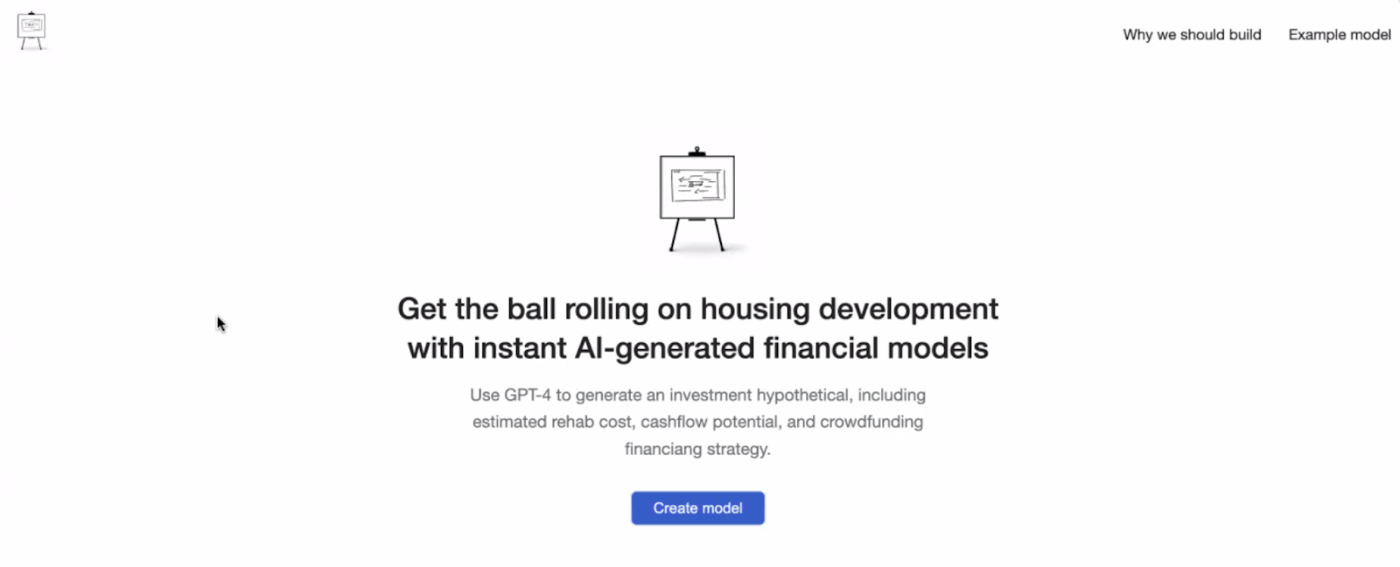
Sponsored By: Scrintal
This essay is brought to you by Scrintal, the game-changer for knowledge management. It's not just an app, it's a canvas of infinite ideas, offering bi-directional links for a seamless workflow. Perfect for research, project mapping, process formulation, planning, or studying - Scrintal lets you organize and connect all your thoughts in one place. Every subscribers get 10% off when you use the code EVERY10.
In fantasy books, when people get magic powers, they usually spend a lot of time figuring out how to use them. In our world, when people get magic powers, they mostly go about their day ignoring them.
I know this because that’s what you’re doing. You. You’ve got magic powers—you’ve just been distracted.
The truth is, if you have an idea that involves a keyboard, you can build it today. Doesn’t matter what it is. You can code anything in your imagination just by typing a few commands into ChatGPT. But, more than likely, you haven’t been using these powers. Why?
It’s not your fault. No one told you it was possible. After all, in fantasy books, there’s always a character who busts down the door in the middle of the night and announces your powers to you (and enswines your spiteful cousin for good measure). So let me do that for you:
Hey, you! You, over there, with the goofy expression on your face.
You’re a developer now.
Let me tell you how I know.
The borders of being ‘technical’ are expanding by the day
There used to be a well-defined line between who could build things and who couldn’t. Building was reserved for people who could code—people who were “technical.”
Sure, there’ve been waves of milquetoast no-code tools that purported to turn you into a developer for the past decade. But those turned out to be more like teaching people to play Guitar Hero than guitar.
AI changes this. Today it can take people who have been around tech for a long time, but have never coded, and with the right support, help them build and ship a product in 30 days.
I saw this first-hand at the demo day for the chatbot course I teach.
It’s a month-long course where we teach people with a range of technical skills—from those who have never coded before to professional developers—how to build an AI chatbot. The key enabling technology is ChatGPT, which acts as a coding assistant, personal tutor, and coach for the students.
I was stunned by the variety and quality of the demos. One student built a style guide bot that journalists could use to analyze their language to meet their publication’s tone and voice:
Another student built a bot that gave expert advice about the German immigration process:One built a bot that lets you talk with experts with different personas, like nutritionist, accountant, or trainer:
And another built one that analyzes real estate investment opportunities.
“That’s cool,” you might say. “But this sort of stuff happens every day. People build side projects all the time.”But that’s the thing: they don’t.
Developers build side projects all of the time. And we certainly had a few developers in this course. But the people who built most of these projects don’t consider themselves developers.
They’re not technical. You might say they’re in the “penumbra” of being technical—an adjacent gray area. Maybe they took one coding class in college, or they work as a PM where they interact with developers so they know the general concepts. Some aren’t even in tech: they’re lawyers or consultants or activists. None of them has ever considered themselves capable of coding and launching a product. And until recently, they weren’t.
Yet here they were, after a month of work with ChatGPT, demoing an idea that they’d brought to life by themselves. Later this week, their product will get sent out to all of Every’s audience. We went from a napkin sketch to an app live in production in 30 days.
That’s a huge amount of progress in a single month. There has been a ton of hype around ChatGPT, but here is the actual magic!
ChatGPT is an incredible creative power-up. It gives you the ability to code, design, write, and make good decisions without requiring years of training. And it’s getting better all the time.
All that these students needed in order to unlock this power was a gentle push and a supportive environment from me. And that has implications for everyone, including you.
Let’s talk about what they are.
ChatGPT gets you to wow on day one
Learning to code the old-fashioned way is intimidating.
When I learned to code in the mid-2000s, I used a book: Sams Teach Yourself C++. I spent weeks paging through it and plugging esoteric commands into my computer hoping I was doing it right. When something broke, I had no one to ask to help me. It was so hard.
I wanted to code because I wanted to build businesses. But instead of doing the stuff I’d dreamed of, I spent months learning abstract concepts like variables, loops, and if statements. I almost gave up.
That’s not the case today. With ChatGPT, even if you have zero technical skill, you can have a simple version of your dream app running in an hour. You don’t need to know how for loops or if statements work—you just need to know the right ChatGPT prompts.
That’s important because it motivates the next step: learning how it all works.
Once you’ve seen something work, you want to know why
The first time you see something working that you built, it feels amazing.
Here’s something one of our chatbot course students said after the first lecture: "I’m feeling super empowered using ChatGPT + Replit to code. I can now query APIs, and convert it to Markdown for local storage. All that in an afternoon, it's crazy."
It’s crazy indeed. And the empowerment people feel from learning to build things that actually work provides significant motivation to learn why and how. Rather than learning about functions and variables and for loops in isolation, you can directly see how they stack together to create the thing in front of you.
Students who would’ve ordinarily flunked out of coding and decided it wasn’t for them are much more likely to stick around and become builders in this kind of setup. And ChatGPT isn’t just good at writing code—it’s also good at explaining it. If you paste a code snippet into it or explain a bug you’re running into, it’ll tell you how to fix it.
Studies show that 1-1 tutoring is twice as effective as classroom learning for mastering a subject. ChatGPT is your always-on-super-smart-no-question-too-dumb personal tutor—available wherever you have internet.
It’s the perfect guide for anyone looking to understand just enough to build a product.
It’s not perfect yet—obviously
For the skeptics in the room, I can anticipate the objection. Sure, you can get people to script kiddie their way into a demo. But that’s a far cry from becoming a professional production-ready developer.
And you’re right! You cannot become a professional developer in 30 days, even with AI. Learning to code with ChatGPT can be tricky. It can send you down rabbit holes that you don’t know how to get out of.
You may not spend enough time learning the underlying concepts behind the code you’re writing, instead blindly following ChatGPTs directives, which are sometimes limited and out of date.
ChatGPT is not a total panacea, and it doesn’t negate the skill and intelligence required to be a great developer. There are significant benefits to reap from much of traditional programming education.
But this objection is missing the point. People who couldn’t build anything at all can now build things that work. And the tool that enables this is just getting started. In five years, what will novice developers be able to achieve?
A heck of a lot.
What this means for you
The technical penumbra—that fuzzy line between who can code and who can’t—is expanding day by day. With each advance in AI it gets slightly larger. And there are millions of people who are currently inside of that penumbra, who can make things, who haven’t even realized it yet. It’s like they’ve been endowed with the ability to fly, but they haven’t yet thought to jump.
If you read Every, you have the technical aptitude to code with ChatGPT’s help. The sphere of those anointed with the ability to build things is expanding—and it includes you.
What are you waiting for?
If you want to learn how to code with ChatGPT in a supportive environment with me and other aspiring builders, check out my course, How to Build an AI Chatbot. It’s a month-long course where we’ll teach you how to build an AI chatbot with ChatGPT.
You’ll build your first chatbot on day one, and you’ll learn the underlying principles behind how it works in a step-by-step way.
At the end of the month you’ll demo your chatbot for your fellow students and launch it to the Every audience. If you want to learn to build AI with AI—and learn about GPT-4, Langchain, LlamaIndex, vector databases, and more—this is the course for you.
Our next cohort will be running soon. Learn more:
The Only Subscription
You Need to
Stay at the
Edge of AI
The essential toolkit for those shaping the future
"This might be the best value you
can get from an AI subscription."
- Jay S.
Join 100,000+ leaders, builders, and innovators

Email address
Already have an account? Sign in
What is included in a subscription?
Daily insights from AI pioneers + early access to powerful AI tools
.png)














Comments
Don't have an account? Sign up!
Dan always has the Goods.
@Zeromick thanks Brad :)
Love this article Dan, but I’m left desiring more. I have an app I’ve been wanting to build for years and was hoping this article would point me in the direction of which software/bootcamps/workshops are available for me to start with. I know the AI chatbot course is working great (congrats!) but what’s your advice for people who are looking to build an app?
Love this and agree with the thrust. Huge increase in who can build and how they will build.
It strikes me that there's still a ton of gotchas in the process that sometimes block even motivated users. We're abstracting as many of these gotchas (code writing, error correction, deployment, etc.) with https://www.create.xyz
But the real power does come from the LLM writing the code for your description and you rarely needing to peek under the hood
can you resend the link to your chatbot course? the link in the article is not working.